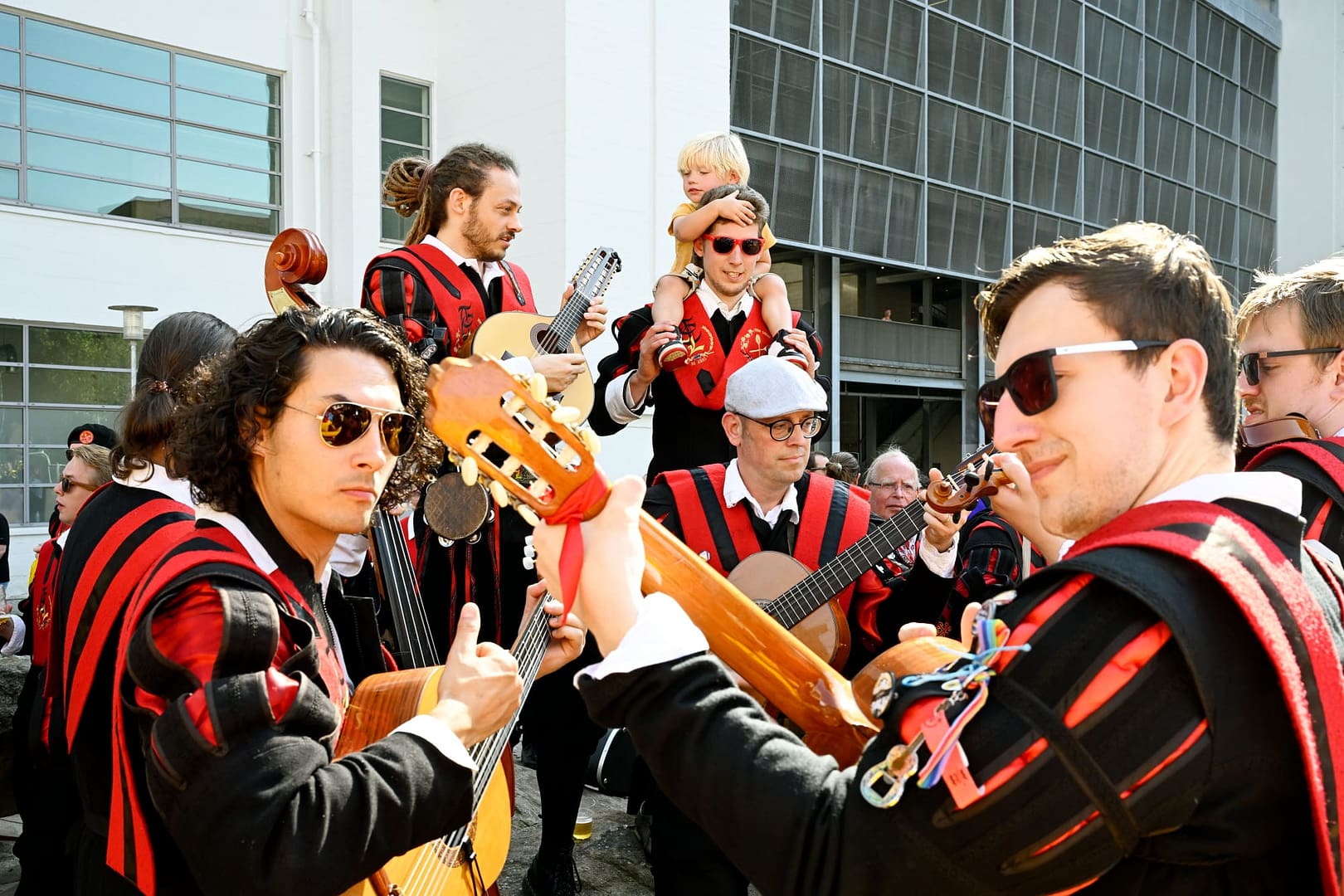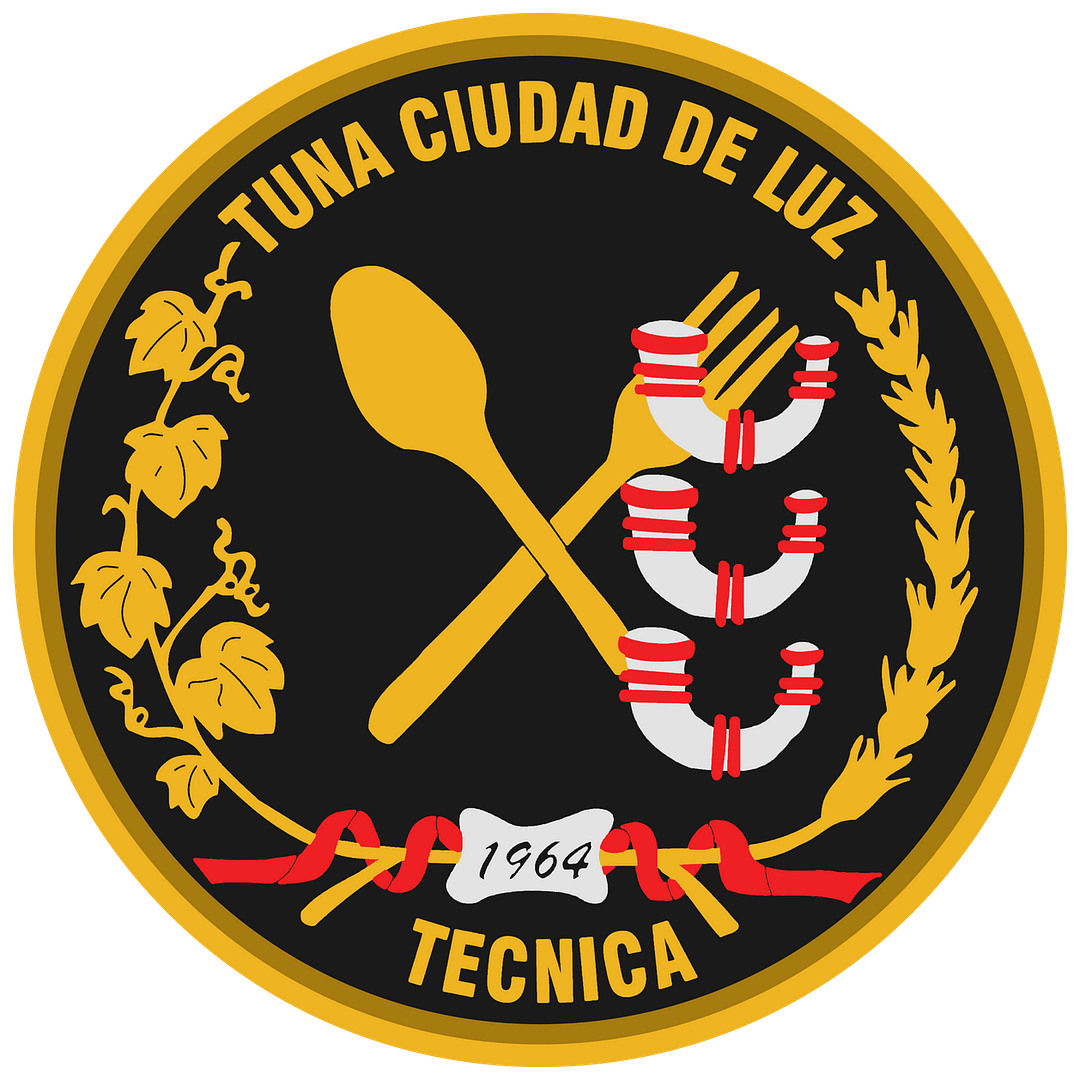About us!
The tuna tradition
the tuna in Eindhoven
The festival
The Tuna Tradition

A tuna is a group of students that enriches life through making music. This general and brief description of the concept of tuna can also apply to other music groups. What then makes the phenomenon of tuna unique? To begin with, the origin history reveals much. The term tuna dates back to early medieval Spain. Since universities did not yet exist at that time, students would travel from one master to another. To support themselves and entertain themselves and others along the way, they made music. Naturally, they also expressed their love for the fair maidens they encountered.
When universities began to emerge, the need to travel diminished, but the tuna tradition persisted. Nowadays, nearly every faculty in Spain has its own tuna. The tunas still wear traditional black costumes, and the main themes of their songs remain unchanged: love, travel, enjoyment, and student life.
Acoustic instruments such as the laud (Spanish lute), bandurria (a type of mandolin), guitar, accordion, and pandereta (small tambourine) are used for musical accompaniment. This tuna tradition has also taken shape in other countries after its inception. Portugal and various South and Central American countries have adopted this tradition. Some tuna groups following the Spanish example have also been established in non-Spanish-speaking countries, including the Netherlands.
Eindhoven is also the residence of the first female tuna group, ‘La Tuniña’, and thus the birthplace of the female tuna tradition. As there are now numerous female tunas in the homeland of Spain, our Dutch town has had a significant influence on the state of the current tuna tradition.
The Tuna in Eindhoven
In 1971, the music group acquired its own house: the Tunahuis. Aalsterweg 171 quickly became the home base for all Tuna activities, including performances and “rondas” (musical journeys). During these rondas, they would play in cafes and restaurants, exchanging music for food, drinks, and fun. Since 1986, festivals have also been organized in Eindhoven, where tuna groups from all over the world come to perform.
The sight of young students wandering through the city in medieval costumes, singing Spanish songs and playing traditional instruments, has become inseparable from studying at the University of Eindhoven.
During a vacation on the Costa Brava, a group of students from the Eindhoven University of Technology first encountered the local tuna. Upon their return to Eindhoven, they came up with the idea of having fresh first-year students sing a few tuna songs to a prominent lady as part of their initiation. Both the creators and performers became enthusiastic, and the Tuna Ciudad de Luz (Tuna of the City of Light, Eindhoven) was born in 1964.

Since then, the Tuna has become a well-known and unique phenomenon in Eindhoven. To commemorate its first lustrum in 1969, the first single was released. A year later, the Tuna from the TU Eindhoven participated in a Spanish Certamen (tuna festival) in Madrid.
The Festival
A tunafestival (Certamen de Tunas) is a musical gathering of various tuna groups. Generally, it is organized at a local or regional level, but national or international festivals are also regularly held. The highlight of this event is the “certamen,” which is the competition.
An expert jury evaluates the performances of all tuna groups, both on stage and during the procession through the city. There are awards for the best group in each category, the most entertaining group, and individual musicians (such
as solo singers, flag bearers, and tambourine players).
After the first festival in Eindhoven in 1986 – the first certamen on ‘foreign’ soil – ten more tunafestivals were organized in Eindhoven. In the years without a festival, a “Noche de Tuna” is organized. This noche is a smaller version of the tunafestival. Due to the intimate atmosphere of the Noche de Tuna, the audience is immersed in the tuna tradition. During the Noche and the Pasa Bares (pub crawl), where the tuna groups move from one bar to another, one can experience the original tuna ambiance.

